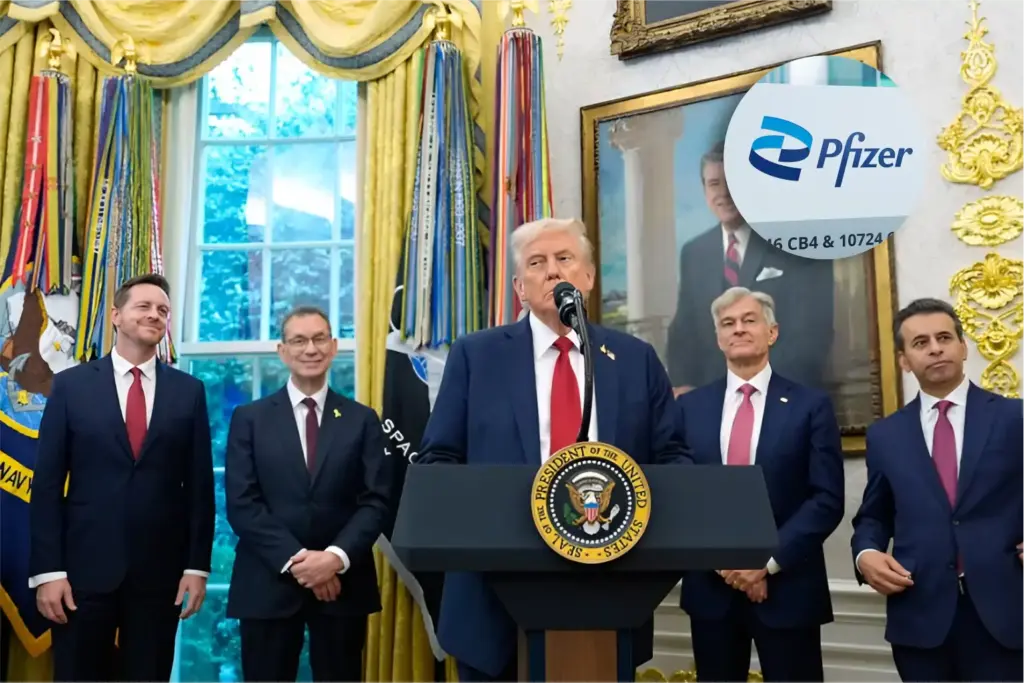
Pfizer Trump deal: President Donald Trump on Tuesday announced an agreement with Pfizer to lower the price Medicaid pays for many of the company’s prescription drugs, describing it as a template for similar deals with other manufacturers. Standing alongside Pfizer CEO Albert Bourla at the White House, Trump said the company will extend “most-favoured-nation” pricing to Medicaid, including on newly launched medicines, by matching the lowest prices offered in other developed countries.
Pfizer, whose portfolio includes the COVID-19 vaccine Comirnaty, the antiviral Paxlovid, Eliquis, Prevnar vaccines and several oncology medicines, will also sell products directly to consumers on a new federal website, TrumpRx, with average discounts of about 50%, according to the administration. Consumers are unlikely to see lower prices before 2026, senior officials said.
Also Read | Trump slaps 100% tariff on branded drugs: Here’s how it will impact India
The White House framed the pact as an outgrowth of a May executive order that pressed drugmakers to voluntarily cut prices or face new payment limits. Trump said additional agreements with other companies are expected within a week and acknowledged using prospective tariffs as leverage. He also claimed price cuts “over 100%” in some cases, a mathematically impossible assertion that would imply drugs are free or patients are paid to take them.
Medicaid beneficiaries generally pay only nominal co-pays, but lower acquisition costs could ease pressure on state budgets. Uninsured patients may benefit from the TrumpRx channel, though even 50% discounts could still leave monthly out-of-pocket costs in the hundreds of dollars for some therapies.
Trump also said Pfizer is committed to investing $70 billion in US research, development, and manufacturing projects over the next few years. The company confirmed plans to direct spending to domestic R&D and capital projects but did not provide site-specific details.
The announcement came hours before a potential federal shutdown amid partisan disputes over health and spending. While the administration pursued drug-price concessions, Democrats pressed to reverse Medicaid cuts enacted earlier this year and to extend Affordable Care Act premium subsidies in a short-term funding bill. Republicans said they would not negotiate.








